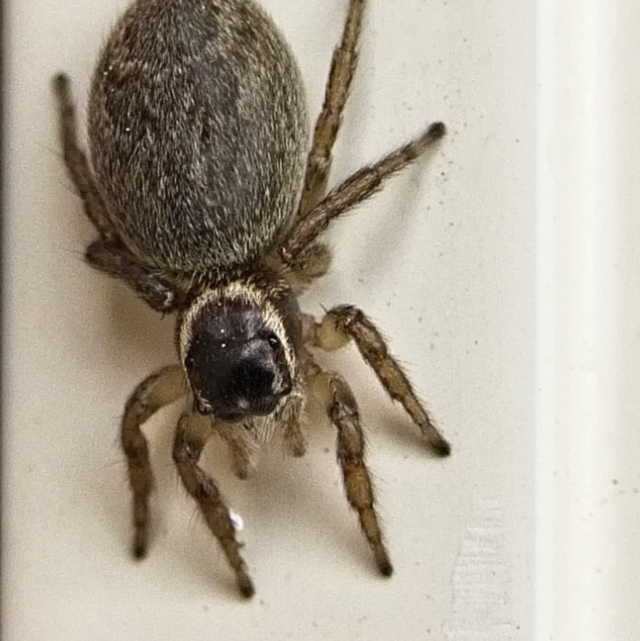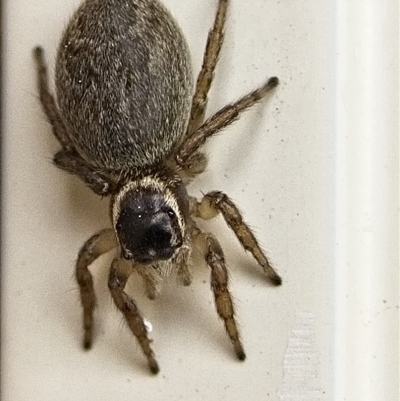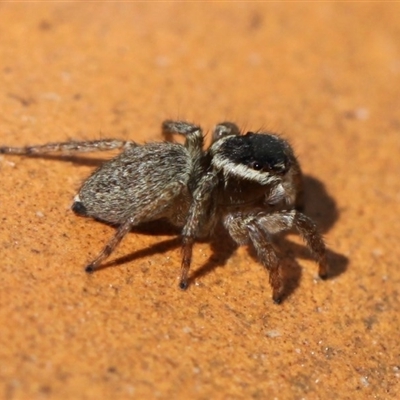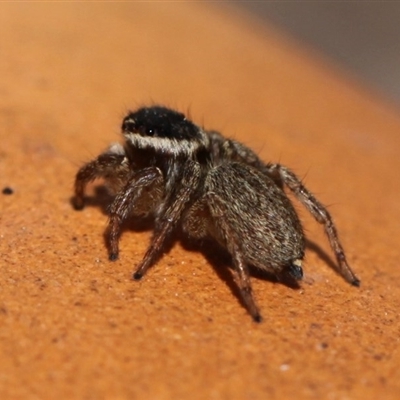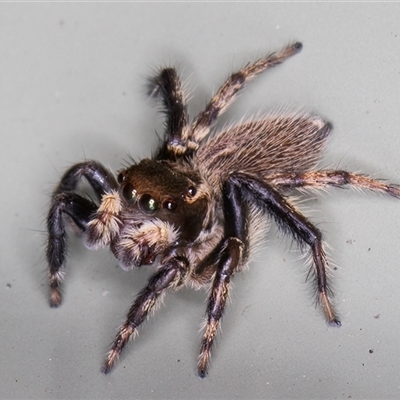Maratus griseus (Jumping spider)
Sometimes known as the 'House hopper'.
*Noted by moderator, April 2022:
This species has been updated in response to the publication of Hill, D.E., Otto, J.C. (2021, 24th February). Catalogue of the Australian peacock spiders (Araneae: Salticidae: Euophryini: Maratus), version 4, Peckhamia 148.4. https://peckhamia.com/peckhamia/PECKHAMIA_148.4.pdf.
Details on Maratus griseus, formerly identified on NatureMapr as Hypoblemum griseum (now classified as a junior synonym) can be found on page 22. There are two photos, an image of reported distribution, statement on the history of ID, and an introductory description.
An older publication contains abundant images of specimens for Maratus griseus (or what was then accepted as Hypoblemum griseum) provided for reference:
Hill, D.E., Otto, J.C. & Whyte, R. (2019, 12th March). Australian jumping spiders of the genus Hypoblemum (Araneae: Salticidae: Euophryini). Peckhamia 180.1. https://peckhamia.com/peckhamia/PECKHAMIA_180.1.pdf.
*please note that PDF files linked from Peckhamia may take a while to load.
Other references include:
http://www.findaspider.org.au/find/spiders/455.htm
http://www.arachne.org.au/01_cms/details.asp?ID=2550
Maratus griseus is listed in the following regions:
Canberra & Southern Tablelands | Southern Highlands | Albury, Wodonga | South Coast | Greater Sydney | Hunter Region | Central West NSW | New South Wales North Coast | Hume | Greater Melbourne | Barwon South West | Greater Brisbane | Tasmania
Species information
- Maratus griseus Scientific name
- Jumping spider Common name
- Not Sensitive
- Local native
- Non-invasive or negligible
- Up to 1488.7m Recorded at altitude
- Machine learning
- External link More information
-
Synonyms
Hypoblemum villosum Maratus griseus Hypoblemum griseum
Location information
-
Places
Kandos, NSW


